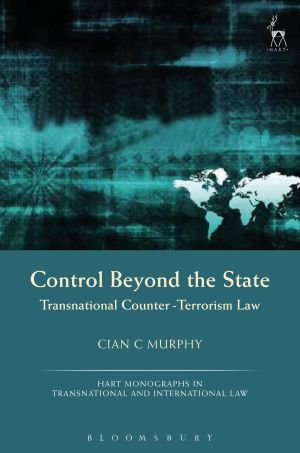
A key characteristic of governance after 11 September 2001 is the acceleration of existing dynamics of the globalisation of law. In the face of transnational threats to national security states have sought to use global forums for policy development to shape counter-terrorism throughout the world. Control Beyond the State offers the first critical exposition of the dynamics of this transnational counter-terrorism law: global governance, regional government, bi- and multi-lateral agreements, extra-territorialisation, legal diffusions and the rise of private rule-making and enforcement.
The book uses key case studies to reveal how the dynamics of law under globalisation can have a radical effect on constitutional principles such as the rule of law. In doing so it demonstrates how transnational counter-terrorism law can be a potent force for shaping the public sphere at national, supranational, and global levels and asks how, if at all, legal process can serve as a means for resistance to excessive restrictions on political freedom.